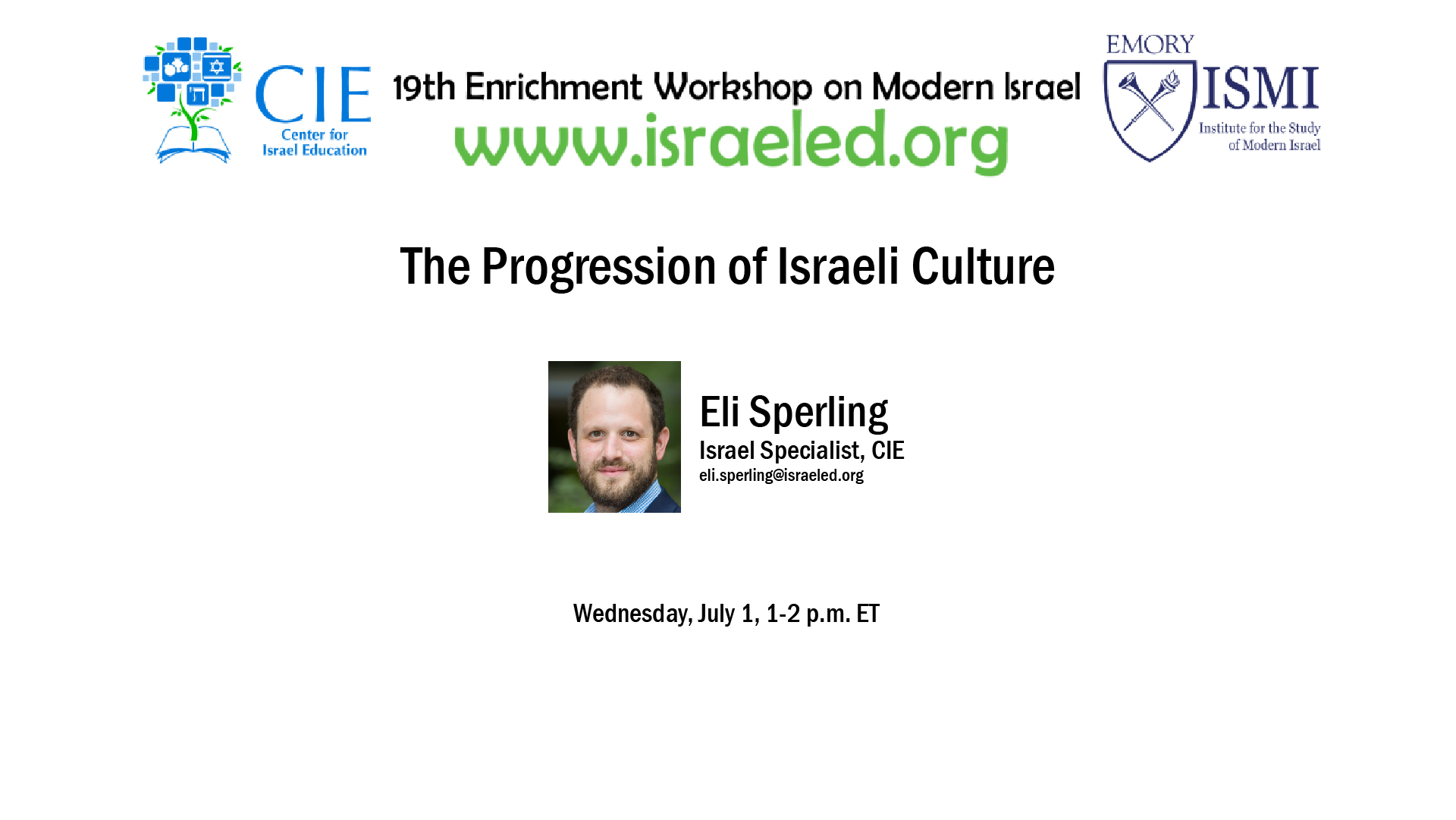
Upon its inception, Zionism needed more than political and financial solutions to actualize a Jewish home in Palestine. It was necessary for the architects of the Zionist enterprise to cultivate a “new Jew” to lay the societal foundation for what would become the state of Israel. The result was a largely European, secular and labor-focused conception of Hebrew and then of Israeli society and culture. However, in the decades after Israel’s independence in 1948, staggered waves of culturally, religiously, and geographically diverse Jewish immigrants came to Israel. These immigrant groups from the Middle East, North Africa, Ethiopia, the former Soviet Union, Western Europe and other locations, as well as Israel’s Arab population, have all challenged the still-evolving notions of “Israeliness” as reflected in Hebrew and Israeli cultural output and the arts. Through the lens of music, literature, film, and other media, CIE Israel specialist Dr. Eli Sperling explores the many layers of Israeli culture and society.
